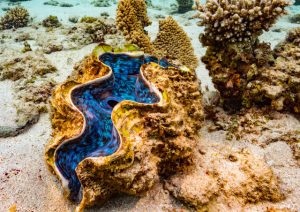
Enric spent a lifetime as an environmentalist. He grew up on the Mediterranean and was fascinated by the plethora of marine organisms and their benefits to man. He was keen on proving his hypothesis that, when nature is healthy, man is protected from disease.
Destroying Biodiversity Is Killing Us!
The increasing competition from humans with wild animals for food, water, and territory has created more opportunity for animal-borne diseases to jump over to man. The loss of habitat results in wild animals being under stress and more readily picking up viruses that can be passed on to man. A 2020 scientific study explored the link between the abundance of species that carry zoonotic viruses and the likelihood of infecting humans. They found the bats, rodents and primates that carried most of these viruses, lived closely with humans, and were more likely to be contagious.
But before we jump to the conclusion that we should eliminate the carriers, he suggests we take closer look at the bigger picture and what is causing these animals to contract the viruses in the first place. He lays out a compelling argument that the loss of biodiversity is, in effect, eliminating the natural organisms that filter out the viruses. Basically we have removed the filters. We have been destroying the natural habitat before we even knew how it was saving us!
The Perfect Testing Grounds
Enric wanted to know how that scenario played out in the oceans that cover more than 70% of the planet. So he organized several scientific dive expeditions to the pristine Line Islands that cross the equator in the Central Pacific south west of Hawaii. These reef islands are a perfect place to study the effect of man on the marine habitat since some of the islands are uninhabited and some are inhabited.
What he and his team found was that the effect of human habitation, including fishing and pollution, denigrated the biodiversity of the reefs. In the waters of the islands that were inhabited, these imbalances had occurred, setting off a chain reaction that destroyed the coral and the biodiversity that it promotes. What was left was only small fish and grasses. In these waters, they found 10 times the bacteria of that in uninhabited islands.
Natural Filters Eat Viruses
Not only did the number of bacteria increase, but it morphed into several types of microbes especially dangerous to humans and the reef itself. Once the reef begins to die, the microorganism filters die out and the process accelerates.
In another startling discovery, the waters of the uninhabited islands yielded a huge, healthy, biodiversity including the rare giant clam that has been hunted to the edge of extinction as food stock for humans. Under controlled scientific experiments they demonstrated that the giant clam was a major filter of bacteria and viruses, kind of like the N95 mask of the oceans.
Saving our Natural Filters
Are we eating our N-95 masks? Are we destroying our natural protections against viruses? He suggests that we can “rewild” to prevent future pandemics by “clamping down on illegal wildlife trade, ending deforestation, protecting intact ecosystems, educating people about the risks of consuming wildlife, changing the way we produce food, phasing out fossil fuels, and transitioning to a circular economy.”
During the 3 month shelter in place orders we all witnessed a resurgence of nature. Why not remove the behavior that is preventing this from coming back?
Sound like a prescription to get heathy and create prosperity at the same time! Certainly, this is a great opportunity for a Green Economy! We find it interesting that there is a common thread of truth to our survival and economy: healthy planet, healthy humans, healthy economy!
Read the short 3-page National Geographic article, or better yet, pick up Enric’s book, The Nature of Nature – Why We Need The Wild .
Who We Are

Michael Houlihan and Bonnie Harvey co-authored the New York Times bestselling business book, The Barefoot Spirit: How Hardship, Hustle, and Heart Built America’s #1 Wine Brand. The book has been selected as recommended reading in the CEO Library for CEO Forum, the C-Suite Book Club, and numerous university classes on business and entrepreneurship. It chronicles their humble beginnings from the laundry room of a rented Sonoma County farmhouse to the board room of E&J Gallo, who ultimately acquired their brand and engaged them as brand consultants. Barefoot is now the world’s largest wine brand.
Beginning with virtually no money and no wine industry experience, they employed innovative ideas to overcome obstacles, create new markets and forge strategic alliances. They pioneered Worthy Cause Marketing and performance-based compensation. They built an internationally bestselling brand and received their industry’s “Hot Brand” award for several consecutive years.
They offer their Guiding Principles for Success (GPS) to help entrepreneurs become successful. Their book, The Entrepreneurial Culture: 23 Ways To Engage and Empower Your People, helps corporations maximize the value of their human resources.
Currently they travel the world leading workshops, trainings, & keynoting at business schools, corporations, conferences. They are regular media guests and contributors to international publications and professional journals. They are C-Suite Network Advisors & Contributing Editors. Visit their popular brand building site at www.consumerbrandbuilders.com.
To make inquiries for keynote speaking, trainings or consulting, please contact sales@thebarefootspirit.com.






